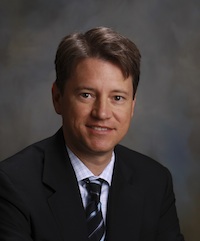What is OCD or Obsessive Compulsive Disorder? It is a condition in which a person feels compelled to respond with regularity to a known anxiety that simply doesn’t feel rational to the rest of us. As a result, OCD sufferers engage in repetitive behaviors to stop obsessing about a particular thought and, ultimately, relieve the anxiety.
The most common type of OCD revolves around contamination associated with the awareness of dirt or germs causing a perceived threat and a strong desire to eliminate these contaminants. This results in a ritualistic response such as obsessive hand washing, cleaning, etc.
Another common form of OCD involves checking on certain things most of us find trivial such as locking the door, ensuring light switches, faucets, stoves are off, or any items that if left unchecked might pose a perceived risk to the well-being of the OCD individual or others. It is not uncommon for the person to engage in this checking behavior between 10 to 100 times. The overwhelming impulse to check persists until the individual experiences reduced tension despite knowing full well that the various items are secure.
Less common forms of OCD include the hoarding items typically considered worthless such as junk mail, novelty items, magazines, garbage, and even the excessive purchasing of shoes, garments, etc. The overriding (and irrational) fear that one day these items might be of value leads to this obsessive-compulsive behavior. Other hoarders find themselves obsessively and emotionally attached to certain items that they believe hold emotional significance memorializing particular moments in time. The person feels that relinquishing the item is in some way equates to releasing a past experience or association with a significant other.
Also, people with OCD often feel compelled to do things in a particular way in order to feel like the task has been done correctly. For example, he or she may feel the need to fasten the seat belt before the car is started. If the person accidentally starts the car prior to starting the car, he or she will turn off the car in order to buckle up first.
Conventional logic begs the question. If a person has already taken steps to relieve anxiety, why repeat these specific actions over and over again? As much as this individual would like to forget the thoughts that lead up to obsessive actions, they tend to be disturbing and result in the compulsory act in order to achieve peace that often lasts for just a few moments.
The causes of OCD are relatively unknown although there are some reports that say that OCD stems from genetics and often manifests itself in people of high intelligence.
There are different treatments available for OCD the most effective of which is therapy. One of the popular therapies being used to treat OCD is called Exposure and Response Prevention where a person is exposed to the thing that invokes fear most repeatedly. He will then be instructed to control his thoughts. Through constant practice, the person will get cured from the OCD. It just takes practice in learning to control his thoughts.
There are also medications recommended for OCD but always remember that taking medication in excess can be bad for your health and may even cause or contribute to depression. It is important that the person follows the instructions of the doctor or mental health provider and include therapy for the condition to ensure the best results.
In many cases the family is also affected when one of the family members has OCD. There are family therapies to help family members understand OCD and the afflicted family member better. In therapy, family members will be instructed on ways they can help speed up the progress or recovery of the patient. Obsessive Compulsive Disorder is a serious condition but is highly treatable. People with this condition just have to be guided accordingly and family members must show patience and understanding along the way.

